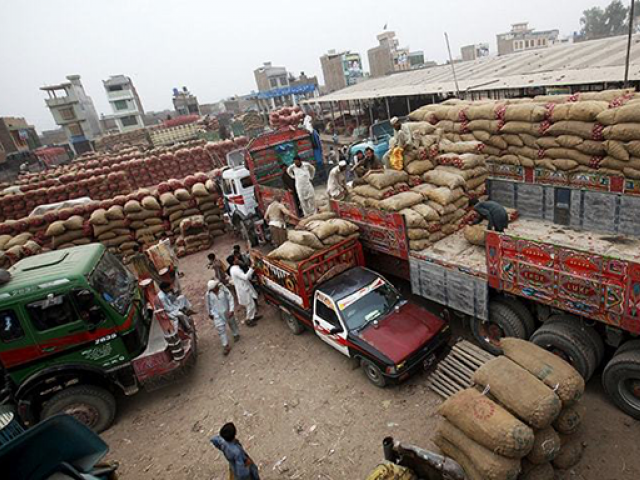Sweeter terms under study to boost exports
Rs180b textile package announced by ex-PM may further be incentivised

Rs180b textile package announced by ex-PM may further be incentivised. PHOTO: REUTERS
Finance Minister Ishaq Dar chaired a meeting on Monday to review the precarious position, according to an official hand-out of the Finance Ministry. The meeting was attended, among others, by Minister for Commerce Pervaiz Malik.
Options discussed at the meeting included the possibility of modifying the Prime Minister’s Textile package to address exporters’ concerns, enhancing tariff rates to curb imports and floating a global bond to raise funds to cushion the foreign exchange reserves, according to officials.
Despite urgency, matters moved at a snail’s pace at the bureaucratic level. Measures proposed for boosting exports and curbing imports could not be finalised, officials said.
July-May FY17 revised: SBP changes current account deficit figures
Pakistan’s current account deficit widened to $2.1 billion in July this year against just $662 million in the same period last year. Domestic foreign currency reserves were under extreme pressure, and there is a likelihood they may soon slip below the minimum threshold to cover three-month import bill.
In January this year, former Prime Minister Nawaz Sharif announced a Rs180 billion Textile Package for boosting exports. But the incentives were contingent upon exporters’ ability to demonstrate a net 10 per cent increase in exports over the previous year’s figures.
In other words, exporters can claim the benefits of fiscal year 2017-18 in the next fiscal year. On the other hand, exporters fear that the new government coming into power after the next general elections may refuse to honour these commitments, the officials said.
The meeting also discussed the following options: abolishing the 10 per cent condition and paying half of the benefits in advance and the remaining on materialisation of the increase in exports, said the officials.
Experts divided as Pakistan’s current account deficit balloons 205%
The majority of the meeting’s participants favoured paying half of benefits upfront, but no final decision was taken in this regard, said the officials.
The finance minister said that effort should be made to achieve growth targets set under the export incentive package.
The finance minister directed the secretaries finance, commerce and textile industry to remove all impediments hindering the achievement of this target, according to the hand-out.
The meeting also discussed how to build on the current month’s growth in remittances, said the finance ministry.
Sources quoted the commerce secretary as saying that his ministry would soon finalise the tariff rationalisation plan, helping significantly reduce the import bill. The plan talks about increasing import duties on items deemed unnecessary or those which could be substituted by domestic goods.
However, an increase in import duties might be seen as reversal of tariff liberalisation achieved under the three-year International Monetary Fund (IMF) programme.
The meeting also discussed another proposal to further incentivize remittances.
The finance secretary said that several meetings had been held with stakeholders and various measures had been identified, including a proposed remittance scoring card, international road shows, transaction efficiency and settlement of charges. Other options included floating Remittance Bonds to encourage non-resident Pakistanis to invest in Pakistani papers.
The finance minister directed the authorities concerned to quickly finalise the proposed initiatives.
The meeting was also briefed on various measures to finance the current account deficit in the short-term, according to the Finance Ministry.
Options, such as tapping of capital markets and trade finance facilities, were also discussed.
The government is considering tapping global markets by floating international bonds. However, this may take some time to complete procedural formalities.
Sources said that further delays might increase the government’s cost of borrowings to contain the rapidly deteriorating external sector.
According to the finance minister, the national economy was passing through an expansion phase, and the country might reap dividends far higher than the cost currently being borne as a result of widening of trade deficit. “This is just a short-term phenomenon”, the official hand-out quoted him as saying.
The Finance Secretary explained that the recent increase in the current account deficit was largely driven by a sharp increase in imports of machinery for power generation, textile, construction and import of petroleum products. He said that these were healthy imports which will increase the production capacity of the economy, and enable higher growth and exports in future.



















COMMENTS
Comments are moderated and generally will be posted if they are on-topic and not abusive.
For more information, please see our Comments FAQ